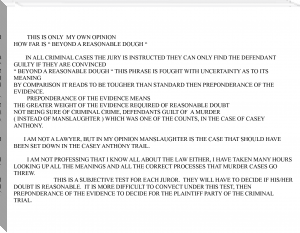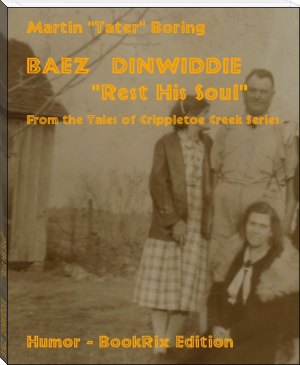All Aboard; or, Life on the Lake<br />A Sequel to "The Boat Club" by Oliver Optic (ebook reader ink .txt) 📗

- Author: Oliver Optic
Book online «All Aboard; or, Life on the Lake<br />A Sequel to "The Boat Club" by Oliver Optic (ebook reader ink .txt) 📗». Author Oliver Optic
"I don't understand you."
"You shall in due time."
"Tell me what you mean, Tim."
"Will you join us?"
"Tell me about it, first."
"And let you blow the whole thing?"
"I won't say a word."
"Will you promise not to say anything?"
"Yes."
"Will you swear it?"
Tim had read a great many "yellow-covered" books in his time, in which tall buccaneers with long beards and bloodshot eyes required their victims to "swear," and he seemed to attach some importance to the ceremony. Charles "swore," though with considerable reluctance, not to reveal the secret, when it should be imparted to him.
"You must join our society, now."
"Society?"
"Yes; we meet to-night at eight o'clock, in the woods back of my house."
"What sort of a society is it, Tim?" asked Charles, with a great many misgivings.
"That you shall learn when we meet. Will you come?"
"My father won't let me go out in the evening."
"Run out, then."
Tim suggested various expedients for deceiving his parents, and finally
Charles promised to attend the meeting.
"You haven't told me the secret yet."
"The society is going to camp on Center Island next week, and we are going to take the Zephyr and the Butterfly along with us."
"Take them? How are you going to get them?"
"Why, take them, you fool!"
"Do you mean to steal them?"
"Humph! We mean to take them."
"But do you suppose Captain Sedley and George Weston will let you keep them?"
"They can't help themselves. We shall take the Sylph, and every other boat on the lake, with us, so that no one can reach us. Do you understand it?"
"I do; but how long do you mean to stay there?"
"All the week."
"And sleep on the ground?"
"We can have a tent."
"How will you live?"
"We shall carry off enough to eat beforehand." Then you see, we can sail as much as we please, and have a first-rate time on the island. I shall be coxswain of one boat, and you shall of the other if you like."
"But we shall have to come home some time."
"In about a week."
"What would my father do to me then?"
"Nothing, if you manage right. If he offers to, just tell him you will run away and go to sea. He won't do nothing then."
"I don't know about that."
"He won't kill you, anyhow. And you will have a week's fun, such as you never had before in your life."
"The Zephyrs won't have anything to do with me after that."
"They hate you, Charley, and all they want is to get you out of the club. You are a fool if you don't leave yourself!"
Charles paused to consider the precious scheme which had thus been revealed to him. To spend a week on the island, and not only to be his own master for that time, but command one of the boats, pleased him very much. It was so romantic, and so grateful to his vanity, that he was tempted to comply with the offer. But then the scheme was full of peril. He would "lose caste" with the Zephyrs; though, if Tim's statement was true, he was already sacrificed. His father would punish him severely; but perhaps Tim's suggestion would be available, and he knew his mother would be so glad to see him when he returned, that she would save him from the effects of his father's anger. His conscience assured him, too, that it would be wrong for him to engage in such a piece of treachery towards his friends; but Tim declared they were not his friends—that they meant to ruin him.
Thus he reasoned over the matter, and thus he got rid of the objections as fast as they occurred to him. While he was thinking about it, Tim continued to describe in glowing colors the fun they could have; occasionally relating some adventure of "Mike Martin," "Dick Turpin," or other villain, whose lives and exploits were the only literature he ever read.
But Charles could not fall at once. There were some difficulties which he could not get over. It was wrong to do as Tim proposed; it was so written on his soul. The "still small voice" could not be silenced. As fast as he reconciled one objection, another came up, and something in his bosom kept saying, "You must not do it."
The more he thought, the more imperative was the command. "Run away as fast as you can!" said the voice within him. "You are tempted; flee from the temptation."
"I guess I won't join you, Tim," said he.
"You won't, eh?" replied Tim, with a sneer.
"I think not; I don't believe it is right. But I won't say anything about it."
"I rather guess you won't. It wouldn't be safe for you to do so."
"I won't, upon my honor, Tim," replied Charles, rising from his seat, and edging away from his dangerous companion.
"Look here, Charley Hardy; in one word, you've got to join the Rovers."
"The what?"
"That's the name of a society," answered Tim, who had mentioned it without intending to do so.
It was certainly a piratical appellation, and Charles was not prepossessed by it in favor of the society. It had a ring of bold and daring deeds, and his studies had not prepared him to entertain a very high opinion of Tim's heroes, Dick Turpin and Captain Kidd.
"You can't back out now, Master Hardy," continued Tim.
"I don't want to join you, but I won't say a word."
"Very well, my fine fellow!" and Tim rose and walked away towards home.
Charles did not like this. He was afraid of Tim; afraid that some terrible thing would happen to him if he did not keep on the right side of him.
Like thousands of others, he had not the courage to do his duty, and leave the consequences to take care of themselves. He was more afraid of the Bunker than of the frowns of an accusing conscience.
"I say, Tim!" he called.
"Well, what you want now?" replied Tim, stopping.
"Suppose I don't join?"
"Then you will be in Rippleton jail before to-morrow night; that's all."
"What for?"
"No matter; if you come to the meeting to-night, all right; if you don't—Rippleton jail;" and Tim hastened away, heedless of Charles's calls.
Rippleton jail! What could he mean by that? He felt guilty, and his heart beat so violently that he could hardly breathe. The stolen purse, which still lay buried on Center Island, seemed to haunt him, and with that he immediately connected Tim's dreadful threat. His confederate meant to charge him with stealing it. It was all very plain, and his conscience told him how justly he would be accused. He could not go to jail innocent, as Tony had, and be borne home in triumph from the court by the boat club.
His frame trembled with emotion; and he knew not what to do. There was a right way and wrong way for him to proceed—the path of duty and the path of error.
"I will go to Captain Sedley and tell him all about it," said he to himself, "and tell him that they mean to steal the boats."
This was the path of duty; but he had not the courage to walk in it. He would be despised even then, and Tim Bunker would certainly be revenged if he did.
"I will go;" and he actually walked a short distance towards Captain Sedley's house; but his courage failed him; he dared not do right, and that evening he joined the "Rovers."
Poor Charles!
CHAPTER XV. THE "ROVERS."After Charles Hardy had joined the "Rovers" band, which was composed of the original Bunkers, with others whom Tim had collected together, his conscience proved less troublesome. The first wrong step taken, the second follows with less compunction, and so on, till the moral sense is completely blunted.
At the meeting he was informed by Tim that he had been admitted to the society on account of his knowledge of boats. They could not get along without such a fellow; and he was accordingly appointed "master of marine," and second in command to Tim himself. These honors and compliments reconciled him to the society of the Rovers, and he began to exhibit his energy of purpose in directing the details of the next week's operations.
Saturday was appointed as the day for stocking the island with provisions and other necessaries, ready for the reception of the entire party on Sunday night. Tim and Charles were to attend to this duty in person.
"Meet me at eight o'clock in the morning over by Joe Braman's landing,
Charley, and—"
"But school keeps; I can't go till afternoon."
"And then the Zephyrs will see what we are about."
"I can't help it."
"Yes you can; can't you 'hook Jack'?"
"I dare not."
"Humph! You are an idiot! Tell the fellows to-morrow that you are going over to your uncle's, and they will tell the master."
Charles consented, after some argument.
"I will get Joe's boat, and we can pull off to the island and get the money."
"Where will you buy the things?"
"We must go down to Rippleton. You must get some, and I will get some. We will buy them at different stores, so no one will know but what they are for the folks."
"And the tent?"
"We will get a piece of cotton cloth for that, and some needles and thread. Leave all that to me. Now, be on hand in season."
"One thing, Tim: I may be seen in Rippleton."
"No matter if you are. Bluff 'em off if they say anything."
The Rovers were to "rendezvous"—Tim had found this word in the "Adventures of the Bold Buccaneer"—at nine o'clock on Sunday evening at the wood. The arrangements were all completed, and the band dispersed.
On Saturday Charles was true to his appointment, and met Tim on the north side of the lake. The money was procured, and the provisions were safely deposited in the boat. It is true, Charles was so much embarrassed that he well-nigh betrayed the existence of the plot to the shopkeepers; and he was very glad when this part of the business was done.
Then a new difficulty presented itself. Suppose the Zephyrs should visit Center Island that afternoon and discover the stores! They had not thought of this before, and the risk was too great to be incurred. They decided to conceal their stores on the main shore till night, and then carry them off. A convenient place was found for this purpose, and the articles were landed.
They then repaired to the island to mature their plans.
"Now, where shall we pitch the tent?" asked Charles, when they landed.
"On the high ground near the beach."
"We have no poles. Here is the May-pole; that will do for one."
"We can't pitch the tent, soldier fashion. We must drive down four forked stakes; then put poles on the forks, and cover the whole with cloth."
"But where are the stakes and the poles?"
"We can cut them in the woods. We will get Joe Braman's ax, and do it this forenoon."
"Suppose they should make a raft, and come off to us?" suggested
Charles.
"We have two fast boats, and can easily keep out of their way," replied
Tim. "If they want to fight we can beat them off."
Charles did not approve of fighting, and thought it would be bad policy. Tim was tolerably tractable now that he was having his own way, and was not very strenuous in support of his own pugnacious views. When their plans were fully digested they left the island to prepare the stakes. Before noon they separated, and the truant returned home about the usual time.
That afternoon he joined the Zephyrs in an excursion up the lake, and another lighthouse was erected in the vicinity of a dangerous reef.
"What shall we do next week?" asked Charles, as they were returning home.
"We are going up the river," replied Frank. "My father has consented to it."
"Has he? That will be first rate."
"And so has George Weston."
Charles relapsed into deep thought. He was thinking how much better he could enjoy himself with good boys than with such fellows as the Rovers; for, though he was "master of marine" among them, he could not help acknowledging to himself that they





Comments (0)